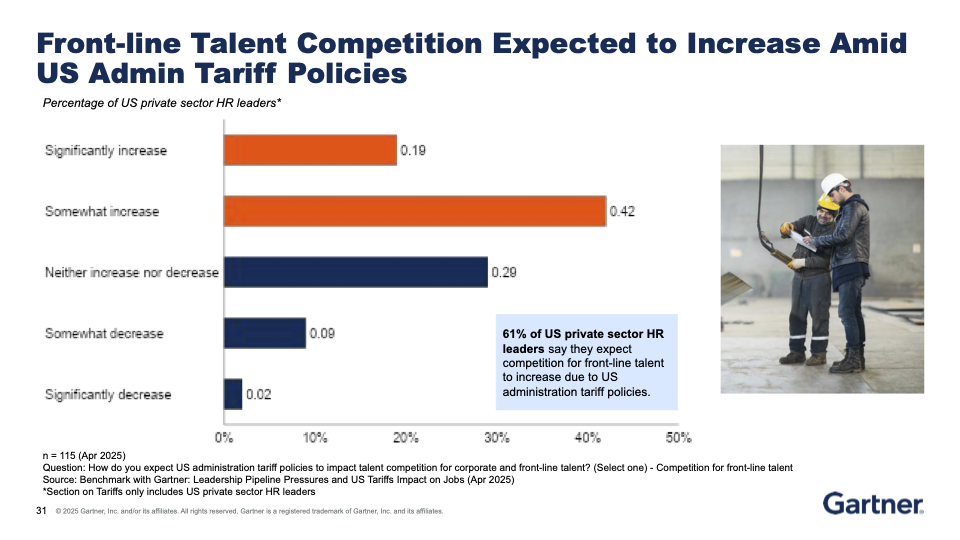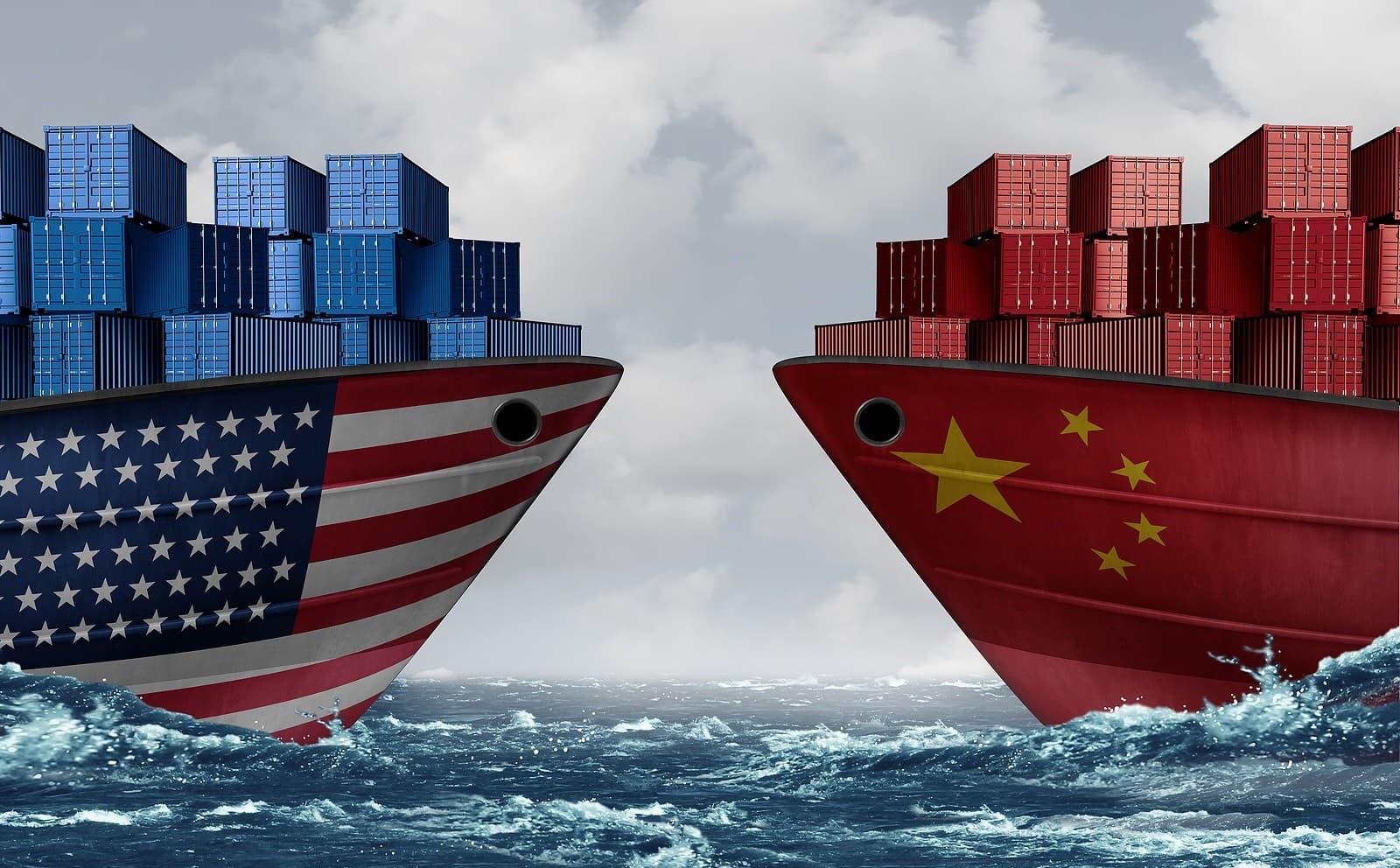In a labor market being reshaped by geopolitical friction and the ripple effects of AI, employers are facing growing uncertainty about how to attract and retain talent. The April 2025 Benchmark with Gartner report offers a glimpse at how these forces are disrupting traditional hiring patterns and workforce strategies. While U.S. administration tariff policies have emerged as a major concern, the larger story is about how unpredictable conditions are making it harder for organizations to plan, hire, and compete for talent.
A Market in Flux: Talent Supply Meets Demand Confusion
The labor market is sending mixed signals. According to Gartner, job postings rose sharply to 36% in April after hovering between 25%–29% during Q1, while voluntary quits dropped to 14%—the lowest level in over two years. As the report notes, “This suggests a general market hardening, as employees are increasingly hesitant to make any career changes amidst uncertainty, despite more available jobs.”
This disconnect reflects a deeper shift: hiring patterns are no longer tracking reliably with economic indicators. As Dion Love, Gartner’s Vice President, Research & Advisory, put it, “We used to see [job postings] track pretty clearly with the economic climate.” He continued, “What we’re seeing now is… maybe there is a teasing apart of how the labour market operates, from how the economy is going overall.”
Candidate expectations, meanwhile, remain elevated. “Candidate selectivity has continued on a high from back in 2022 when we had that hiring surge,” Love said. “All of this suggests the demographic shifts [and] the socio-political change… have heightened expectations and so far those expectations remain heightened.”
HR Leaders Expect US Tariff Policy to Disrupt the Labor Market
Gartner’s April data shows that tariff policy is expected to increase hiring pressure across the board—even though few employers have taken action yet.
- 61% of HR leaders expect increased competition for frontline talent due to U.S. administration tariff policies.
- 55% say hiring for new roles will become more difficult.
- 49% expect backfilling attrition in current roles will also become harder.

Yet a gap remains between expectation and execution. According to the report 64% of US private sector HR leaders say that the US administration’s tariff policies will lead to the need for cost-saving measures, but only 37% have implemented or plan to implement such measures in response. Additionally, 40% of the surveyed HR Leaders anticipate rising wage pressures, but only 5% have increased or plan to increase wages.
Why the disconnect? In addition to the direct impact of tariffs on business and the labor market, there is the unpredictability of the new policies.
“Markets like certainty,” said Love.
Time to Stress-Test Your Talent Strategy
This kind of volatility highlights a broader risk to workforce planning. Gartner reports that 71% of HR leaders say recent market shocks have put their ability to deliver on talent strategy outcomes at risk.
“What are the underlying beliefs and assumptions that are supporting our strategy that need to hold true in order for that talent strategy to work?” Love asked. “And how can we do a better job of understanding what those things are, sensing how they’re going, and positioning ourselves to respond quickly?”
